Search
Search Results
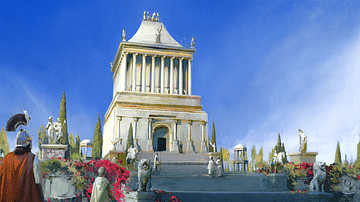
Definition
Mausoleum at Halicarnassus
The Mausoleum at Halicarnassus (Bodrum, Turkey), was a massive tomb built for Mausolus, the ruler of Caria, c. 350 BCE. The marble structure was so immense and decorated with such an array of striking sculptures that it made it onto the list...
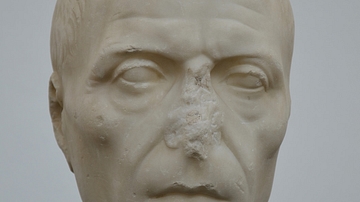
Definition
Cato the Younger
Marcus Porcius Cato (95-46 BCE), better known as Cato the Younger or Cato of Utica, was an influential politician of the Roman Republic. As the great-grandson of Cato the Elder and a dedicated student of Stoicism, he believed in traditional...

Definition
Masada
Masada (“fortress” in Hebrew) is a mountain complex in Israel in the Judean desert that overlooks the Dead Sea. It is famous for the last stand of the Zealots (and Sicarii) in the Jewish Revolt against Rome (66-73 CE). Masada...

Definition
Cynane
Cynane (l. c. 357- 323 BCE, pronounced `Keenahnay') was the daughter of the Illyrian Princess Audata and King Philip II of Macedon, making her the half-sister of Alexander the Great (l.356-323 BCE). Following the Illyrian tradition of women...

Definition
Roxanne
After Alexander the Great's victory over King Darius III at the Battle of Gaugamela in 331 BCE, he had to contend with small rebellions that broke out across his empire. In the summer of 328 BCE, one such rebellion occurred in the eastern...
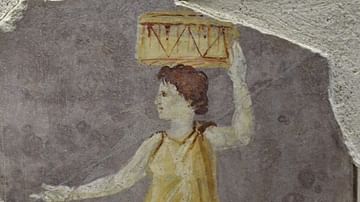
Definition
Hipparchia of Maroneia
Hipparchia of Maroneia (l. c. 350-280 BCE) was a Cynic philosopher who rejected her upper-class life to live her beliefs and share her values on the streets of ancient Athens. She was the wife of the Cynic Crates of Thebes (l. c. 360-280...
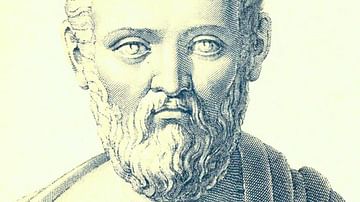
Definition
Isocrates
Isocrates (436-338 BCE) was an ancient Athenian rhetorician, characterized as one of the most prominent orators of his time, even though it appears that he restricted himself to writing speeches and not orating them himself. His most notable...
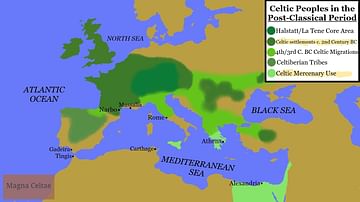
Article
The Celtic Invasion of Greece
Between the 5th and 4th centuries BCE, Celtic tribes moved en masse into southern Europe, intent on seizing land and wealth to feed their swelling numbers. As these tribes began crossing the Alps, they came into conflict with the Romans and...

Article
Philo of Byzantium's On the Seven Wonders
Philo of Byzantium's On the Seven Wonders (225 BCE) is the first known list of the Seven Wonders of the Ancient World (though it may have been based on earlier works now lost). Philo's list differs from the standard Seven Wonders in replacing...
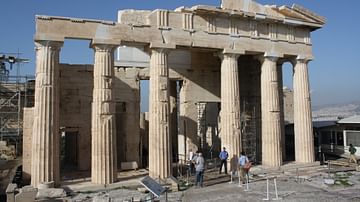
Article
Pausanius' Guide To Ancient Athens
Pausanius (l. 110-180 CE) was a geographer and historian who traveled extensively, taking notes on points of interest, then wrote on them in guide books which could be used by tourists visiting the sites described. His works have long been...